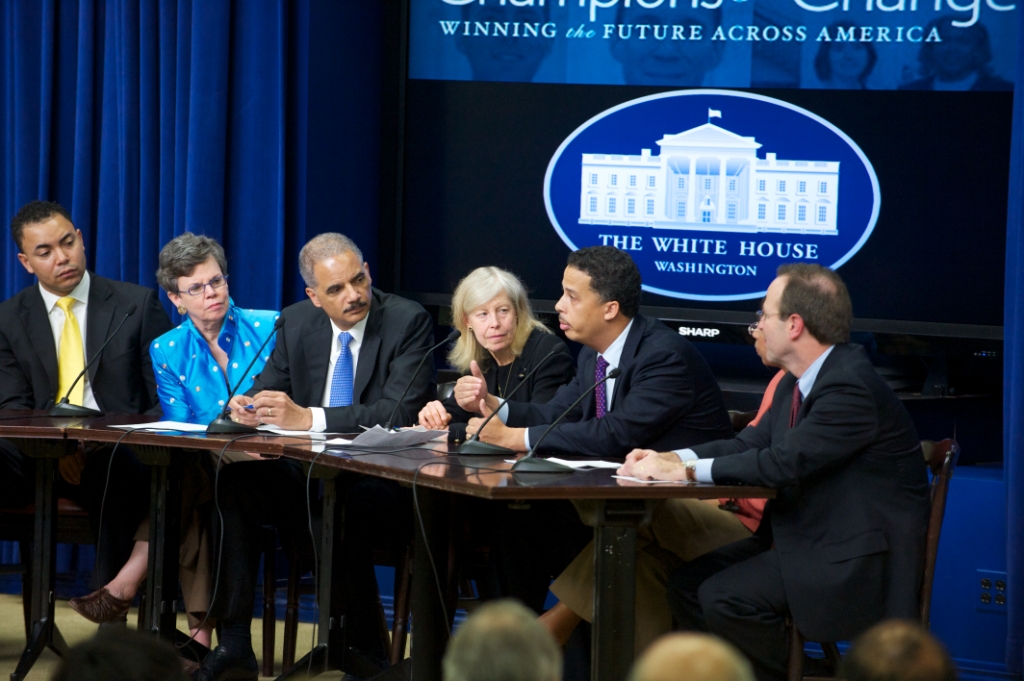The following post appears courtesy of the Access to Justice Initiative .
Approximately ten years after the terrorist attacks of September 11th, Congress passed the James Zadroga 9/11 Health & Compensation Act. The Act reactivated the September 11th Victim Compensation Fund (VCF), which operated from 2001-2003, and expanded the pool of claimants to include first responders, members of cleanup crews, and other individuals who suffered latent physical injuries due to their exposure to Ground Zero. Sheila Birnbaum, a lifelong New Yorker with decades of experience resolving complicated litigation, was appointed Special Master of the Fund.
To ensure that the claim-filing process was accessible, transparent, and easy to navigate, the VCF established a streamlined online filing system and encouraged claimants to register and submit their claims electronically. The site was made available in English, Spanish, Polish, and Mandarin Chinese.
But the administrators of the VCF and the Department’s Access to Justice Initiative (ATJ) knew some potential claimants might not have easy access to computers or might be uncomfortable with technology. Those claimants, as well as people who were not proficient in English, could benefit from direct assistance, so the VCF and ATJ reached out to the New York public interest legal community. Building on the success of the work of Lynn Kelly of the City Bar Justice Center establishing clinics for VCF claimants staffed by volunteer attorneys, David Udell of the National Center for Access to Justice at Cardozo Law School (NCAJ), suggested that law students might also be able provide similar assistance.
Working with the area law schools’ public interest coordinators, the VCF administrators, ATJ, the City Bar Justice Center, and the NCAJ, Columbia Law School and Cardozo Law School agreed to host two pilot student clinics. VCF conducted a training at Columbia Law School for all interested student participants with the participation of DLA Piper volunteer attorneys who also attended the clinics to help supervise.
Columbia University Law School successfully hosted the first pilot clinic on March 13 and 15, 2012 in which 12 to 15 students assisted roughly 15 claimants each day. Cardozo Law School hosted the second clinic from April 9 to 11. Each day approximately 25 law students from Cardozo, Hofstra, Touro, and the University of Pennsylvania assisted 15 to 20 claimants in all stages of the filing process. At both schools students worked in pairs, often with interpreters or interpreting themselves, and spent one to two hours interviewing individuals, helping them fill out the electronic forms, and uploading documents into the online system.
The result of this true community effort has been a success for everyone involved. For some students the clinics were their first pro bono experience. They gained valuable skills in client communication, and many found it immensely rewarding to offer tangible help to people suffering from grave illness, injury, and loss. Frances Gottfried, Director of the New York Office of the VCF, said she was “impressed with the students’ dedication, flexibility, and enthusiasm,” and claimants at both clinics expressed their gratitude for the students’ assistance.
The City Bar Justice Center is continuing to assist those whose health or loved ones were harmed as a result of 9/11, and will host a pro bono clinic staffed by attorneys on May 7, 2012.
More information about the September 11th Victim Compensation Fund and available legal assistance can be found at http://www.vcf.gov/index.html.
Since its launch in 2010, the Access to Justice Initiative has worked to help the justice system efficiently deliver outcomes that are fair and accessible to all, irrespective of wealth and status. The Initiative’s staff works within the Department of Justice, across federal agencies, and with state, local and tribal justice system stakeholders to increase access to counsel and legal assistance, and to improve the justice delivery systems that serve people who are unable to afford lawyers. If you would like to learn more about the Access to Justice Initiative, visit www.justice.gov/atj.








